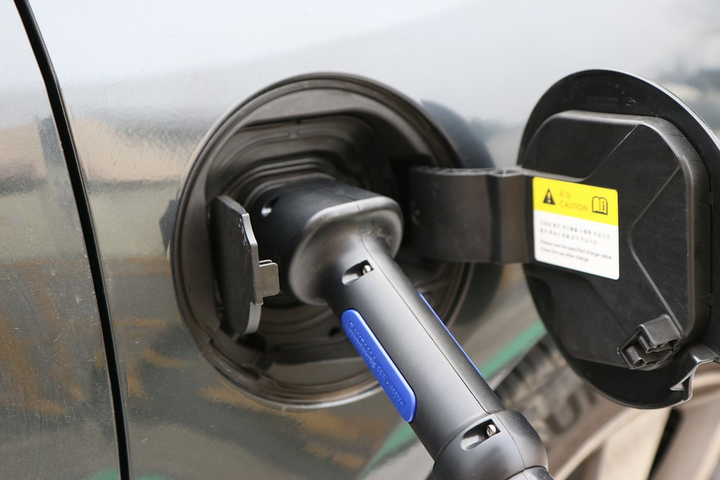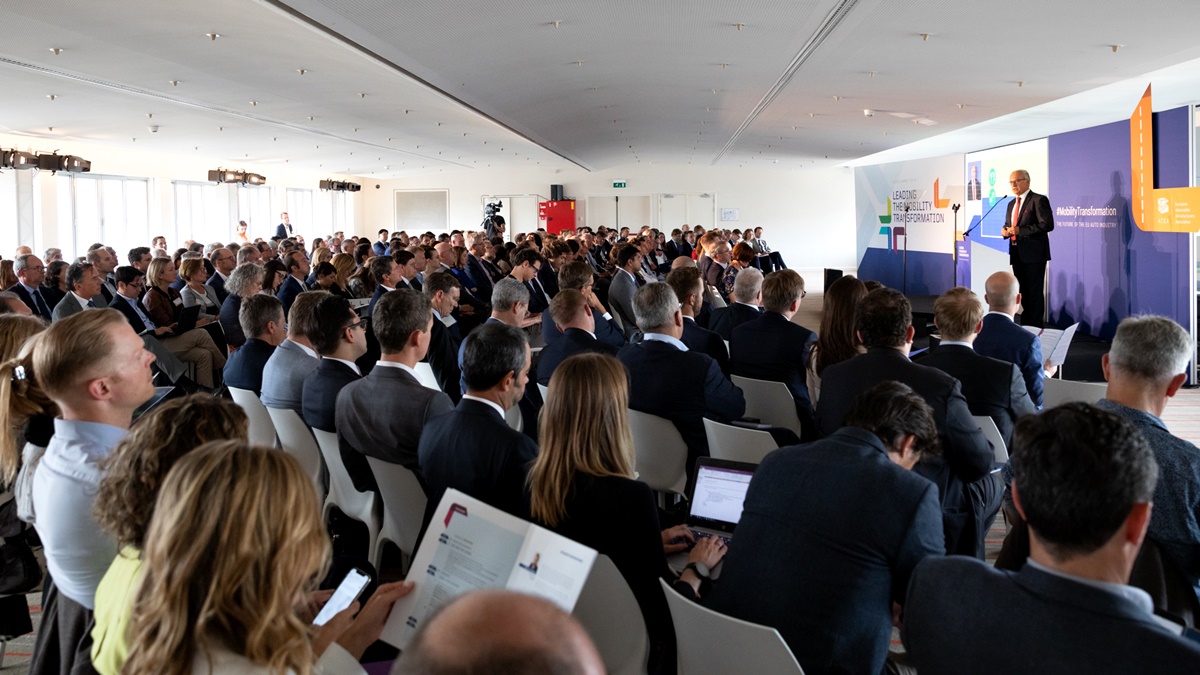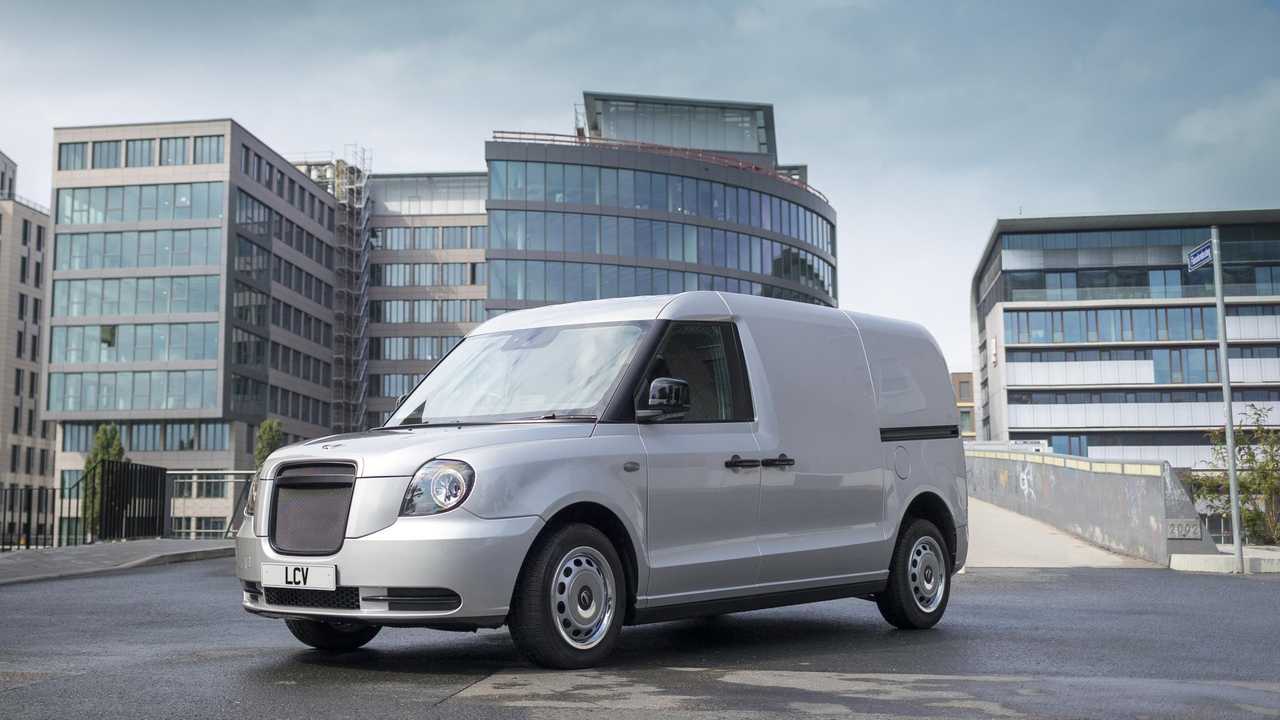Hood River presents an ideal opportunity to test, asses, and learn how to best offer an electric car sharing service in a rural setting. Photo via Pixabay. Forth announced that it has received funding for the Clean Rural Shared Electric Mobility (CRuSE) Project form the U.S. Department of Energy for Advanced Vehicle Technologies Research. The… Continue reading Forth to Start Electric Car Share Program Trial in Under Served Communities
Tag: Electric vehicles
Volkswagen ID wall chargers revealed for Europe; US plans yet to come
As a companion to the launch of its new ID 3 electric car, Volkswagen is offering a series of at-home AC charging stations.
In three flavors, the new ID Charger series ranges in three levels from basic charging to a high-precision, connected suite. All of the versions will have the same 11 kw output, the upgraded models offer additional connectivity for users who want to program and monitor charger usage.
VW ID Charger
In its most basic form, the ID Charger is effectively just a good, old-fashioned plug. At $440 (399 euros), it's a very basic and affordable unit. Volkswagen says it will charge the 58-kwh battery in the ID 3 in six hours.
The next step up is the ID Charger Connect, which offers the first tier of connectivity options. It allows smart monitoring and remote operation via either wired or wireless network, with LTE available as an optional upgrade. Without LTE, it starts at $660 (599 euros), and includes remote management (via VW's App-Connect) and maintenance, access control management via charging card, and over-the-air software updates.
The top-tier unit is the ID Charger Pro. At this level, you get the features of the Connect model, plus an integrated electrical meter for high-precision monitoring of usage. The Pro will run you $940 (849 euros), but the upside is that it includes the Connect model's optional LTE upgrade along with a lifetime data subscription.
There's no word yet on availability in the U.S. market, but we expect that it will follow a formal announcement of VW's plans for bringing its ID vehicle lineup stateside.
News – ‘Future of the EU auto industry’ Summit brings together thought leaders on mobility transformation
The highly anticipated ‘Leading the mobility transformation: The future of the EU auto industry’ Summit organised by the European Automobile Manufacturers’ Association (ACEA) took place on Wednesday 4 September. More than 300 stakeholders in the field of mobility gathered in Brussels to discuss how the EU auto sector can take the global lead in the… Continue reading News – ‘Future of the EU auto industry’ Summit brings together thought leaders on mobility transformation
GM promises electric pickup truck production in union strike negotiation
GM’s union employees are currently on strike over a labor negotiation dispute and the automaker is using the promise of electric pickup truck production at a Detroit factory slated to close in 2020. The Union of Auto Workers has been protesting GM’s previously announced plans to close several factories and letting go thousands of employees.… Continue reading GM promises electric pickup truck production in union strike negotiation
LEVC Presents Extended-Range EV TX Shuttle And LCV In Frankfurt
LEVC introduces Shuttle in Europe and hints at a light commercial van. The London EV Company (LEVC) was present at the 2019 Frankfurt Motor Show with its latest product, the TX Shuttle, which is basically the shuttle versions of the TX Taxi plug-in hybrid (series-hybrid configuration). Both versions are equipped with the same 31 kWh… Continue reading LEVC Presents Extended-Range EV TX Shuttle And LCV In Frankfurt
Waymo’s robotaxi pilot surpassed 6,200 riders in its first month in California
Waymo transported 6,266 passengers in self-driving Chrysler Pacifica minivans in its first month participating in a robotaxi pilot program in California, according to a quarterly report the company filed with the California Public Utilities Commission. In all, the company completed 4,678 passenger trips in July — plus another 12 trips for educational purposes. It’s a… Continue reading Waymo’s robotaxi pilot surpassed 6,200 riders in its first month in California
REE Holds European Debut for World’s First Truly Flat and Modular Skateboard Chassis at IAA, Frankfurt
Alongside strategic partner, Musashi Seimitsu, REE is pioneering the future of electric mobility by reimagining the vehicle, creating the basis for a more efficient, reliable and scalable electric future. (IAA, Frankfurt, September 11 2019) – Today, REE held its European debut for its revolutionary flat and modular platform which fundamentally changes the way electric vehicles… Continue reading REE Holds European Debut for World’s First Truly Flat and Modular Skateboard Chassis at IAA, Frankfurt
VW, Ford in talks to develop second electric car in Europe – Handelsblatt
FILE PHOTO: Ford logo is pictured at the 2019 Frankfurt Motor Show (IAA) in Frankfurt, Germany September 10, 2019. REUTERS/Wolfgang Rattay FRANKFURT (Reuters) – Ford could build more than one model of electric car based on Volkswagen’s (VOWG_p.DE) electric vehicle platform, Ford’s Europe Chief Stuart Rowley told German daily Handelsblatt. To make only one model… Continue reading VW, Ford in talks to develop second electric car in Europe – Handelsblatt
Delphi teases 800V inverter for 2022 “high-performance vehicle”
Last week, in coordination with the Frankfurt auto show, Delphi Technologies announced it will be the first major supplier for the auto industry to produce an 800-volt inverter—a component that Delphi underscores is one of the enablers to allow 800-volt charging and effectively halve charging times compared to today’s 400-volt systems.
As Delphi outlines, with 800V systems, automakers have greater freedom, to either opt for smaller, lighter cables and connectors, harvest more power via regenerative braking, or go for ultra-fast charging.
And at least one more automaker is sold on it. Delphi says that it secured a $2.7 billion deal for volume production of the 800-volt inverter over 8 years with “a premier global OEM,” on the product launch of “a high-performance vehicle” in 2022.
Cadillac electric crossover SUV based on GM BEV3 modular platform
That brings up a long list of potential products. Some or all of the upcoming Porsche and Audi vehicles built around the Volkswagen Group’s premium electric (PPE) platform are expected to be 800-volt, and Hyundai’s Genesis electric luxury cars are expected to be built around an 800-volt architecture. GM’s BEV3 platform is expected to launch in a Cadillac, with premium EVs from Mercedes-Benz expected as well.
In electric cars, the inverter is the component that changes the direct current (DC) from the battery to alternating current (AC) to be used by the motor system. Although the battery pack is by far the most expensive component in electric cars, the inverter is one of the runners-up.
Delphi Technologies 800V inverter
Delphi’s component employs silicon carbide MOSFET semiconductors from the specialist company Cree. Delphi says its Viper power switch together with that helped create a product that is 40 percent lighter and 30 percent more compact than comparable inverters.
Porsche led one of the turning points toward 800V technology. It opted, in 2015, to undertake the development of an inverter, power systems, wiring harnesses, and various accessories all in-house because they didn’t exist then from so-called Tier 1 suppliers.
Outside of the very limited Aston Martin Rapide E and fully electric racing—in Formula E, most notably—800V tech has seen little implementation so far.
That’s clearly now due to change. Even electric-truck hopeful Rivian told Green Car Reports last year that it has conceived its 400V platform for a future 800V upgrade, likely around 2022.
Based on announcements such as this from Delphi, it’s safe to say that the change to 800V is happening—from the top of the market down, because it’s more expensive—and possibly a lot faster than previously anticipated.
CATL considers U.S. plant, targets 45 percent energy-density boost in 5 years
China’s Contemporary Amerex Technology Co., better known as CATL, has in the past several years become a global battery giant.
Last week one of its senior executives revealed to Reuters that the company is considering a manufacturing expansion into North America, even though the market for EVs will lag that of China and Europe.
The company is already planning a battery “gigafactory” of its own in Erfurt, Germany—a facility that will start production in 2021 and be one of the largest battery plants in Europe.
The plant will make cells and modules, which is part of CATL’s plan to mastermind the whole pack and save size and weight. Through its cell-to-pack technology, it says it can increase mass energy density by 10-15 percent and increase volume utilization efficiency by 15-20 percent.
CATL products – 2019
CATL announced firm numbers for the improvements. It can now accomplish more than 200 watt-hours per kilogram with its automotive lithium-ion batteries for EVS (up from 180 wh/kg).
Energy density with its current chemistries has reached 240 watt-hours per kilogram, and it’s targeting 350 wh/kg—a 45 percent improvement—by 2024.
The battery company also announced that it’s working to improve its total battery life to 373,000 miles (600,000 km), with other improvements including uniform self-heating technology built into the battery for better cold-weather performance plus a “turbo charging solution” for larger (C/D-class) vehicles that would allow 0-80 percent charging in just 9 minutes.
2020 Mini Cooper SE Hardtop
CATL recently announced a collaboration with Bosch, in which the battery supplier will supply cells for Bosch’s 48-volt systems globally. It’s already forged supply partnerships with Volkswagen, Daimler, Jaguar Land Rover, Volvo, Honda, and Toyota, and it will be making cells for upcoming BMW and VW models, as well as the 2020 Mini Cooper SE, at the plant in Germany.
Earlier this summer it was reported that LG Chem was considering a second U.S. manufacturing plant to supply Volvo, among other potential customers. And earlier this year South Korean rival SK Innovation broke ground on a $1.7 billion battery plant in Georgia, expected to supply Mercedes-Benz and Volkswagen, among others.



